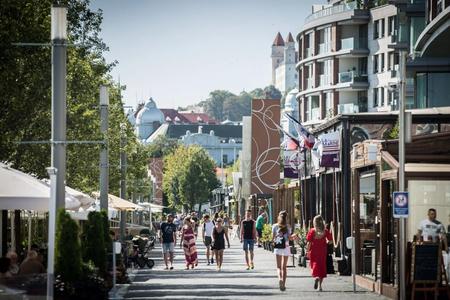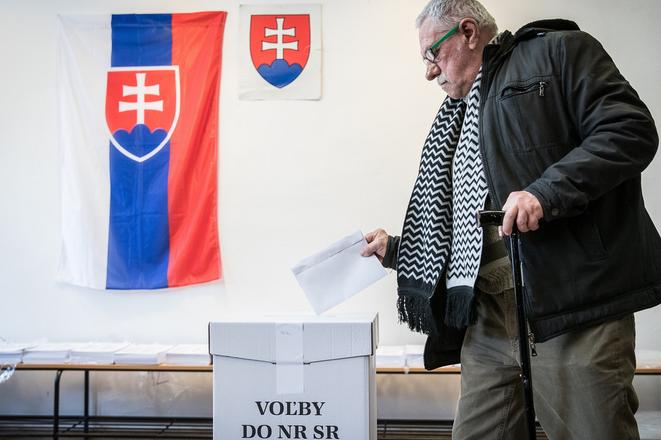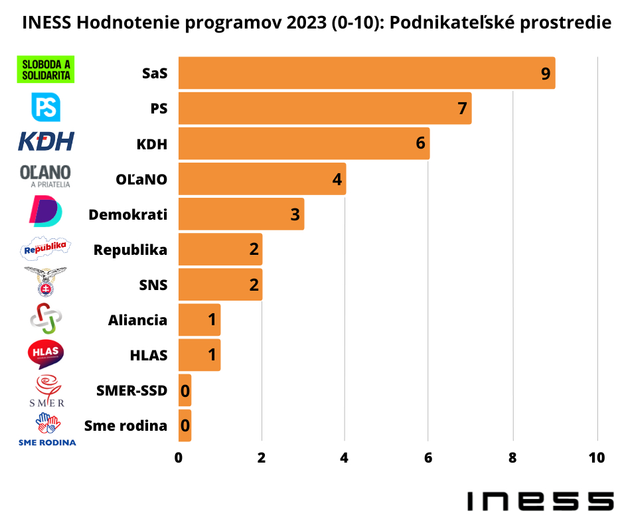Despite the importance of the business environment for the Slovak economy and the growth of living standards, the topic has taken up little space in most political parties’ election programmes this year.
Several parties have only general phrases about supporting higher added value, innovation, and the digitalisation of the economy, or added a few simple accounting improvements in their election programmes, according to an analysis by the INESS think tank.
“All of them, of course, advocate less bureaucracy,” writes INESS analyst Martin Vlachynský, adding that party manifestos lack concrete measures on the subjects of self-employed workers, liberalisation of markets, and others.

The SaS and Progresívne Slovensko (PS) parties and the Christian Democratic Movement (KDH) top the INESS ranking. Their programmes are better in quantity and quality compared to other parties, but nevertheless, none of them gained maximum points, said Vlachynský. SaS scored nine points out of 10 possible, followed by PS with seven points and KDH with six points. Smer and Sme Rodina ended with zero points.
The common feature of the first three parties' programmes is a return to the flat corporate tax, although none of them specify what the rate should be. The rate, introduced during previous reforms which earned Slovakia the nickname of 'Tatra Tiger', was 19 percent.

“The attractive rate of this tax is one of the few things the government can do quickly and easily, to make Slovakia more visible,” writes Vlachynský. “We will only see after the elections whether parties are really serious about this given the huge deficit.”
At the same time it is obvious that the parties do not approach the business environment systematically, he added.
No inspiration in parties’ manifestos
A novel topic specific to this election has been the retail sector as a number of parties support regulation of food prices or interventions in other ways, despite evidence from Hungary of the negative effects of such measures.
“They led to exactly the opposite effect,” writes Vlachynský. “Food prices have risen by 50 percent in a year and at the same time several commodities have become scarce.”
Among the most frequently cited positive measures are increasing the threshold for compulsory VAT registration, which has not changed since 2009.
“If you are looking for inspiration for large-scale reforms that would make Slovakia a country with an attractive business climate, do not look for them in [parties'] election programmes,” the analyst wrote.


 Most parties ignore the topic of business environmnet in their election programmes. (source: SME - Jozef Jakubčo)
Most parties ignore the topic of business environmnet in their election programmes. (source: SME - Jozef Jakubčo)
 The evaluation of parties' election programmes from the viewpoint of business environment. (source: Courtesy of INESS)
The evaluation of parties' election programmes from the viewpoint of business environment. (source: Courtesy of INESS)